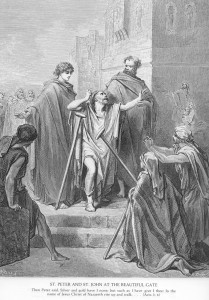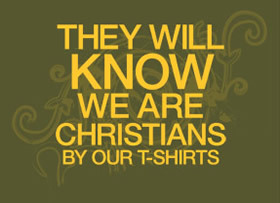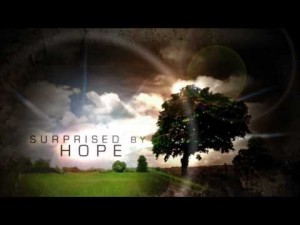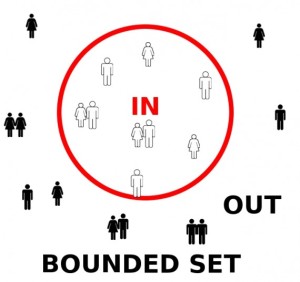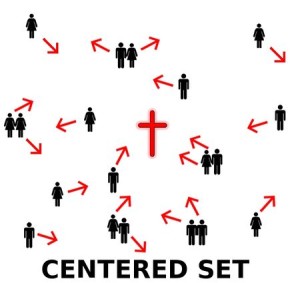 My last post I shared the above study that Barna Group put out that put my local context, Lancaster, PA (in with Harrisburg, Lebanon, and York) on the most Post Christian cities in America at number 38, above places like Austin, TX, Salt Lake City, UT, and Detroit, MI. I shared the fact that the ground underneath us is shifting, moving, and changing and that we are moving to a postmodern and postChristian world. Even Lancaster county, viewed by so many as a haven for all things Christian (Christian music, radio, theater, etc..) is definitely experiencing the same shift that is happening everywhere. Now I wouldn't say we are on the same scale as the Northeast and the Northwest, but we are definitely further along in this postmodern, postChristian shift than the south especially.
My last post I shared the above study that Barna Group put out that put my local context, Lancaster, PA (in with Harrisburg, Lebanon, and York) on the most Post Christian cities in America at number 38, above places like Austin, TX, Salt Lake City, UT, and Detroit, MI. I shared the fact that the ground underneath us is shifting, moving, and changing and that we are moving to a postmodern and postChristian world. Even Lancaster county, viewed by so many as a haven for all things Christian (Christian music, radio, theater, etc..) is definitely experiencing the same shift that is happening everywhere. Now I wouldn't say we are on the same scale as the Northeast and the Northwest, but we are definitely further along in this postmodern, postChristian shift than the south especially.
So this post I'd like to begin to walk you through the process and the strategy that we are using as we continue planting Veritas in Lancaster. I will take this blog post to walk you through the overarching idea as well as the first step within the strategy. The next two blog posts will be on the next 2 steps within the strategy.
First, a few statistics:
The United States is the largest English Speaking mission field in the world. The United States is also the 5th largest mission field in the world. The world's largest missionary-sending country has now become the world's largest missionary-receiving country.
With these statistics and the understanding that we are living in a more and more postChristian setting, we need to realize that we are living in a mission field. And since we live in a mission field context we should take our clues about how to do mission, ministry and church more from missions, then from other areas of church life.
Let me give you a scenario. Imagine with me that God has called you and some friends to start a church in a place where you had no prior relationships, and where the culture is ever increasingly postmodern and postChristian, and is weary of religion, especially of the Christendom variety. This place may be London, Portland, Denver, Amsterdam, or other places (maybe even Lancaster)
What strategy would you use to start a community? What would you talk about at your first meeting after landing on the ground, getting housing, and finding jobs? Where would you start?
I believe the place where you would start is from a posture of a missionary or in this case a missionary community. I believe that as we move more and more into a postmodern, postChristian world, we need to move away from a "church planting" posture and into the idea that we are missionaries.
So you and the group that you have gathered in this postmodern, postChristian city or place, realizes that you need to think, and act as a missionary team, not a church planting team. But what does that mean? How would you move forward together? You would start by going through a basic missionary flow.
The first phase of any mission must involve cultural engagement. But what does it mean to engage the culture? Does it mean evangelism? Does it mean signs and shouting? It honestly is about working to develop relationships and friendships. Hugh Halter and Matt Smay, in the book AND (where we got alot of these ideas) says this "Engaging Culture isn't as much about doing evangelism as it is incarnating the presence of Christ in every relationship we form. If we fail at engaging well and living as Christ would live among our neighbors and friends, we fail as missionaries and the culture doesn't see the visible beauty of the sent church."
So now the question is how is the Veritas community being a missionary community and starting our work/continuing our work. We are continuing to ask those questions including the question "to whom are we sent." But here are some ways that we are seeking to engage the culture.
1. 1st Friday Art Shows. Since our space in right on Art Gallery Row we have sought to connect to what is already happening on 1st Friday by becoming a part of 1st Friday by being an art gallery. We bring in local, upcoming, and emerging artists and give them a space to share their work.
2. 3rd Friday Music Events. 3rd Friday, though not as big as 1st Friday is all about music. And so our space becomes a music venue for local musicians as well as open mics for people to use their gifts. We have also been a venue for 2 years for the annual Launch Music Conference and Festival.
3. Being Good Neighbors. Kim and I are seeking to develop relationships with our neighbors by holding various events, or being a part of other events. We have hosted picnics, drive in movie nights, St. Patrick's Day party (my favorite) as well as helping with the End of the School year Ice Cream party, breakfast at the bus stop, and various other events and activities.
4. Long's Park. Every Summer the local park, Long's Park holds a weekly Summer Music Series that happens on Sunday night. This summer we are encouraging our missionary community to invite their friends and neighbors to join us as we eat, hang out, and listen to the bands for the night. We are doing this to combined mission (reaching out to friends, etc...) and community.
5. Other ideas: We have some other ideas of Engaging the Culture including serving at Celebrate Lancaster (an event in June), serving on 5th Sundays, doing Open Studio art gatherings, possibly chalk the block where we use sidewalk chalk to write positive words of affirmation on sidewalks, and some other ideas that we haven't thought of yet.
So we continue to engage the culture of Lancaster, building relationships, and loving those God sends our way. The next phase in Missionary Flow is where we'll head in the next blog post, that of forming community.






